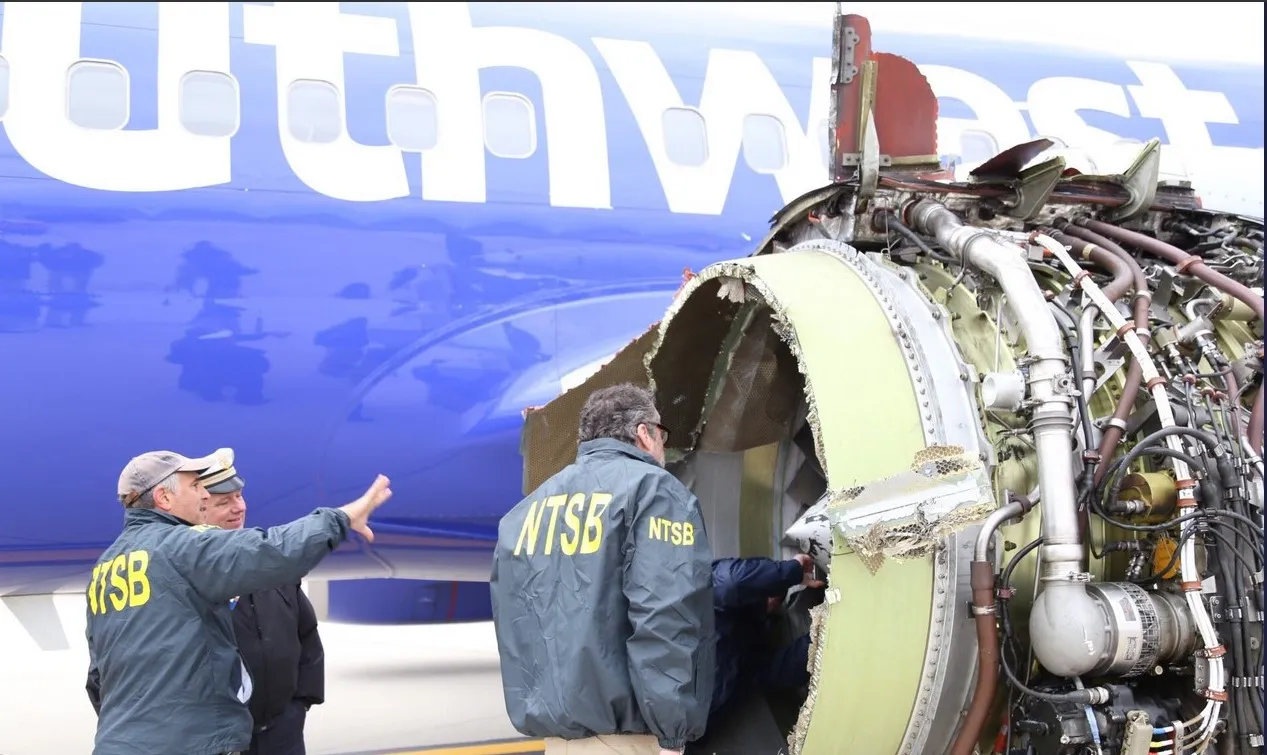
Boeing already working on Southwest fatal flight recommendations
Nov 20, 2019

Boeing is actively addressing the recommendations stemming from the investigation into the fatal Southwest Airlines flight incident. The aircraft manufacturer is collaborating with regulatory bodies and Southwest to enhance safety measures and operational protocols. These efforts are focused on improving pilot training, maintenance practices, and system redundancies to prevent similar tragedies in the future. Boeing's commitment involves not only adhering to regulatory guidance but also engaging in a thorough review of existing safety protocols to ensure the highest standards are met. The company's proactive approach aims to bolster trust and safety in the aviation industry.
Boeing is taking proactive measures following the tragic incident involving a Southwest Airlines flight that resulted in a fatality. The aerospace giant has already begun working on implementing recommendations to enhance safety and prevent future occurrences. This response underscores Boeing's commitment to safety and continuous improvement in the aviation industry.
Understanding the Incident
The recent Southwest Airlines flight incident has raised significant concerns about aviation safety. Boeing, as a leading aircraft manufacturer, is closely analyzing the factors that led to this unfortunate event. The investigation aims to uncover critical insights that can help refine operational protocols and aircraft design.
Key Recommendations from the Investigation
As Boeing collaborates with aviation authorities and safety experts, several key recommendations are emerging from the investigation. These recommendations focus on various aspects of flight operations, maintenance procedures, and pilot training protocols. Here are some of the highlighted areas of focus:
| Recommendation | Description |
|---|---|
| Enhanced Pilot Training | Implement more rigorous training programs for pilots to handle emergency situations effectively. |
| Aircraft Maintenance Protocols | Review and improve maintenance schedules to ensure all aircraft are in optimal condition before takeoff. |
| Real-time Monitoring Systems | Develop and integrate advanced monitoring systems that provide real-time data on aircraft performance during flights. |
| Safety Culture Promotion | Encourage a culture of safety within airlines, promoting open communication about safety concerns among crew members. |
Boeing's Commitment to Safety
Boeing has long been committed to safety and reliability in aviation. The company's response to the Southwest Airlines incident reflects its dedication to ensuring that all aircraft meet the highest safety standards. By addressing the recommendations derived from the investigation, Boeing aims to reinforce its position as a leader in the aviation industry.
Collaboration with Regulatory Authorities
In the wake of the Southwest Airlines flight tragedy, Boeing is working closely with regulatory authorities such as the Federal Aviation Administration (FAA). This collaboration is crucial in ensuring that all safety recommendations are compliant with federal regulations and industry best practices. Boeing's openness to feedback and recommendations from regulatory bodies showcases its commitment to prioritizing safety above all else.
Impact on Airlines and Passengers
The implementation of these recommendations will have a significant impact on airlines and passengers alike. Airlines that operate Boeing aircraft will be required to adopt enhanced safety measures, which will ultimately lead to a safer flying experience for passengers. Increased confidence in the safety protocols can encourage more individuals to travel, benefiting the aviation industry as a whole.
The Role of Technology in Aviation Safety
Technology plays a critical role in improving aviation safety. Boeing is focusing on integrating state-of-the-art technology into its aircraft designs to enhance safety features. Innovations such as advanced avionics, automated systems, and data analytics will be crucial in preventing future incidents. By leveraging technology, Boeing aims to create a safer environment for both crew and passengers.
Conclusion
The tragic incident involving the Southwest Airlines flight has prompted Boeing to take swift action in implementing safety recommendations. Boeing's commitment to enhancing safety measures through collaboration, rigorous training, and technological innovation will pave the way for a more secure aviation landscape. As the industry reflects on these events, the lessons learned will undoubtedly contribute to safer skies for everyone.
By focusing on these key areas and working closely with airlines and regulatory authorities, Boeing is poised to lead the charge in aviation safety, ensuring that similar tragedies are prevented in the future.
Related Articles

Explore Thailand: The Best Islands to Visit for Paradise, Adventure, and Relaxation

The Ultimate Guide to the Best Islands in Thailand for Your Next Getaway

Do babies need passports? How to get a passport for a newborn

How to get a U.S. passport fast: here’s how to expedite the process

What is Mobile Passport Control: 5 reasons why you should use it

SENTRI vs. Global Entry: A detailed guide

Do you need a passport to go to the Bahamas? Let’s find out

Do you need a passport to go to Mexico? A detailed guide

Do you need a passport to go to Canada? We got the answer

Do You Need a Passport for a Cruise: An Essential Travel Guide

Booster Seat Requirements: All the Rules to Follow in Your Rental Car

What Are the World’s Most Powerful Passports, and How Does Yours Rank?

How to Take a Passport Photo at Home: A Helpful Guide

You've got to have heart! Southwest's new livery

Your opinion: Should water be free on low cost carriers?

Young women bolder than guys as solo travellers
